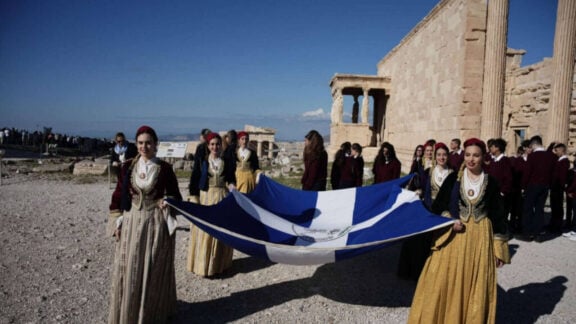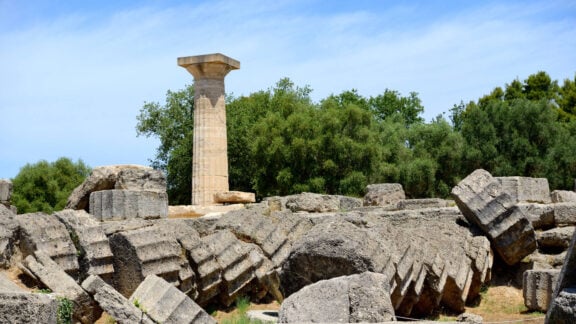Growing up I recall my parents being very informed, but I don’t remember ever seeing a copy of The Age, or even The Herald Sun around the house. Instead I vividly remember my dad sitting in the backyard with a coffee, fully engrossed in the broadsheet pages of Neos Kosmos. It was, and continues to be, the go to for news in the Tsirtsakis household, so when the opportunity arose and everything aligned for me to come on board as a journalist for the English edition, it felt like nothing short of an honour.
It wasn’t long into my role that I was told “here at Neos Kosmos we are like a family”, and as the days, months, and years have passed I have realised this is true. From the warm “kalimera” I receive in the morning, to the stories and wealth of knowledge that are exchanged amongst co-workers of varying ages and many walks of life – all members of different generations of the Greek diaspora, working together under one roof – I came to be one of a lively bunch, each of whom has given me hope for the future, showing me that passion need not die out with age.
Now, four years on, when people ask me what I enjoy most about my job, they often expect it to be about the chance to write for a living. There is that, of course, but my answer is always the people.
One of my fondest memories was being welcomed into the home of former radio presenter Koula Bitsis. A pioneer of ethnic radio, the 81-year-old openly shared her insights and experiences from one journalist to another, and on a personal level, shed tears as she recalled the difficulties so many migrants experienced living so far from their homes, raising their children away from their loved ones.
Or that time after reading The Good Greek Girl, I had the chance to meet the author Maria Katsonis and listen as she spoke of her experiences of mental illness, and the struggle of coming to terms with her sexual identity.
They are just two in a long line of individuals I have had the pleasure of meeting and connecting with; people who were but strangers, before our ensuing insightful and engaging exchanges.
I feel the responsibility of the privilege afforded to me to give these people and their stories a platform within, and in some cases externally of, the Greek Australian community.
When this newspaper was first created in 1957, it rose to the challenge of filling a gap for newly arrived migrants, giving them a voice and a connection to their heritage. As the demographics and media landscape have steadily evolved over the years, so too the publication has adapted, and it is my hope that it continues to do so. Because in an increasingly fast-paced world, there is more need for connection, and that’s what Neos Kosmos continues to do so well.









